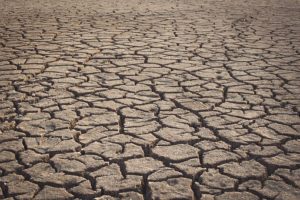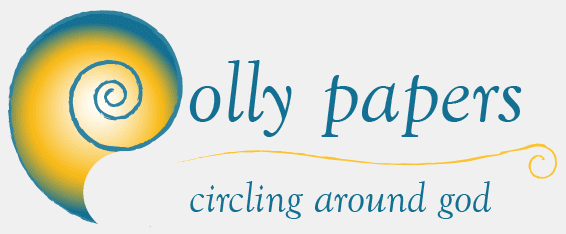It may be difficult to grasp on this chilly, wet Memorial Day weekend in Massachusetts that the western United States is in the middle of one of the worst droughts in 1200 years, a mega-drought. The ground is fissured with deep cracks, grey and hard as stone on what should be lush and fertile grasslands and arable fields. All is once again ready for extraordinary wildfires to consume trees like so much dry tinder, to rage through villages and swaths of open land.
It’s no surprise, sadly, that this will happen. While still reluctant to admit it, the powers that be must surely wake up now to the fact that climate change is killing the earth. Drought is simply one of the adverse conditions caused by a warming planet. Not only are the forests and the fields and populations disappearing, but the entire ecosystem is suffering. Water is the womb for all life, beginning with the microscopic creatures in vernal pools and the ocean floor that grow fish, reptiles and amphibians, nourish birds and insects, grow plants and fungi and feed all mammals. Given this imperative for the chain of life to survive, it’s possible to see the condition of drought as metaphor; for it is not only an ecological crisis but a symbol of the age.
Take a look at these cracks that are slowly becoming deep crevices into which so many have fallen and will continue to stumble. Jobs have gone down these holes, and with them, the livelihood and well-being of families. A national health crisis has swallowed up thousands of lives and affected thousands more; schoolchildren are stuck in the cracks of inadequate educational resources. Those on the margins, black, brown, immigrant and already impoverished, who have been teetering on the edge for centuries, are about to fall into the abyss and disappear, either by their own hand or by the hate that consumes all human decency and compassion. Added to these is the plague of the pandemic which, like the wildfires caused by drought, still spread unchecked through marginalized communities and entire countries.
Jobs have gone down these holes, and with them, the livelihood and well-being of families. A national health crisis has swallowed up thousands of lives and affected thousands more; schoolchildren are stuck in the cracks of inadequate educational resources. Those on the margins, black, brown, immigrant and already impoverished, who have been teetering on the edge for centuries, are about to fall into the abyss and disappear, either by their own hand or by the hate that consumes all human decency and compassion. Added to these is the plague of the pandemic which, like the wildfires caused by drought, still spread unchecked through marginalized communities and entire countries.
We who have plundered and despoiled the earth have been warned of the consequences for nigh on thirty centuries.
Stories of how the world was created that exist in all language groups and spiritual traditions have one thing in common: humanity has been charged with honoring and caring for the living planet. Take, as an example, this prophet’s exhortation from the eighth century B.C.E in the Judaeo-Christian story:
“Because you rejoice and are glad, you who pillage my inheritance; because you frolic like a heifer threshing grain and neigh like stallions: your mother will be greatly ashamed; she who gave you birth will be disgraced. She will be the least of the nations—a wilderness, a dry land, a desert.” (Jeremiah 50:11-12)
Jeremiah spoke for his God, warning folks that if they did not turn from their bestial ways, God would make their home a desert and their nation a wasteland. But that was then and this is now. It’s not God who is visiting the ecological catastrophes on the earth. It’s us. And there’s not a whole lot of time to turn this around.
Hope
“When the poor and needy seek water, and there is none, and their tongue is parched with thirst…, I will open rivers on the bare heights, and fountains in the midst of the valleys.
I will make the wilderness a pool of water, and the dry land springs of water.” (Isaiah 41: 17-18)
Once again, a prophet speaks for God. I’m under no illusion, however, that we should just sit back and wait for some celestial force to act. Fortunately, there are many who have not waited. President Biden, Interior Secretary Halland and teenager Greta Thunberg; Mothers Out Front, The Sierra Club and The Nature Conservancy to name only a few. New permits for wind farms, green building designers, electric vehicle manufacturers and pledges from the almost 200 signatories to the Paris Agreement. Add to these and many other groups all the individuals worldwide who are foregoing plastic, biking or taking public transit in lieu of driving, planting native pollinator gardens, eating locally grown food or growing their own, and so much more. These are drops in the bucket of restoration and hope. For now, these small sprigs are starting to break through the dry, hard land. So also are tender green shoots showing through the cracks of systemic racism, division, poverty and insurrection as our broken society begins its slow progress towards healing.
Inspired by these words of Bishop Ken Unterer, may we keep going on this path.
“This is what we are about.
We plant the seeds that one day will grow.
We water seeds already planted, knowing that they hold future promise.
We lay foundations that will need further development.
We provide yeast that produces far beyond our capabilities.
We cannot do everything, and there is a sense of liberation in realizing that. This enables us to do something, and to do it very well.
It may be incomplete, but it is a beginning, a step along the way…
We are prophets of a future not our own.”
